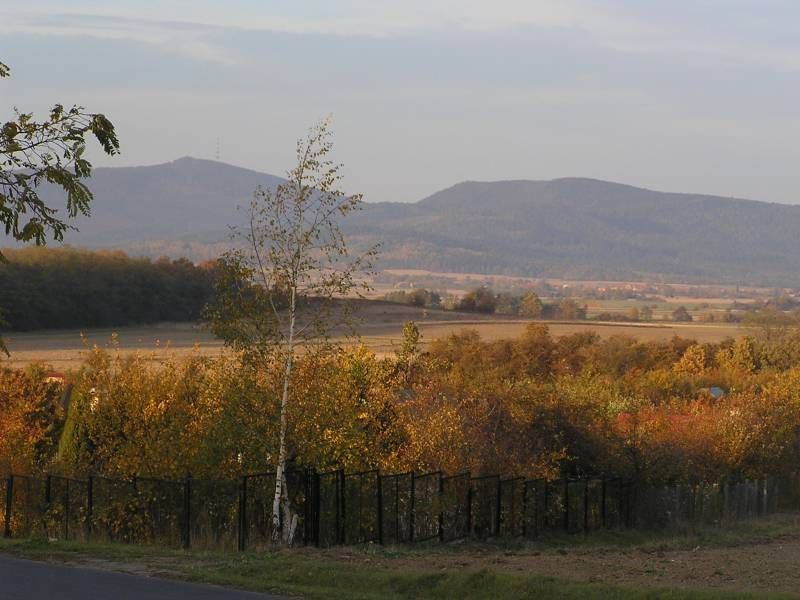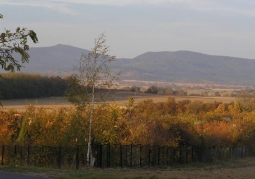Mount Radunia - Góra Radunia Nature Reserve - Ślężański Landscape Park
No weather data
0.0 /5
Number of ratings: 0
Called Sępia Góra. This is the second distinct peak in the Ślęża Massif rising to a height of 573 m a.s.l. The Czarna Woda river has its source on the slopes of the mountain at the height. The mountain is built of serpentine with an admixture of magnetite, which causes a high magnetic anomaly. At the beginning of the Iron Age, a stone cult circle was created here, surrounding the moon sanctuary. The copies preserved to this day are 1780 m long. At the top there is a hollow, the so-called "Kacza Kałuża", in which fragments of vessels were found. Below is the source of Srebrnik, which was probably used for ritual ablutions, or symbolic washing of the body. Objects made of bronze were discovered here. On the northern slope of Radunia there is an old and unused T-bar ski lift with a length of 500 m.
Komentarze
No results
Nearby places

Góra Radunia Nature Reserve - Ślężański Landscape Park
Category: Nature reservesA floristic reserve established in 1958. In 2011, the reserve area was increased to 44.26 ha. It covers the top parts of Radunia built of volcanic rocks with rare plant sites. There are extremely rare and protected...
1 km
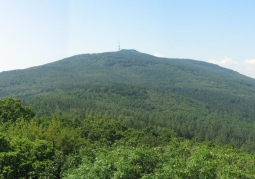
Góra Ślęża Nature Reserve - Ślężański Landscape Park
Category: Nature reservesIt covers an area of 141.4 ha, covers, among others the top of Ślęża. It was created to protect historical monuments and landscape values located in the vicinity of the said peak. In addition, it protects...
4 km
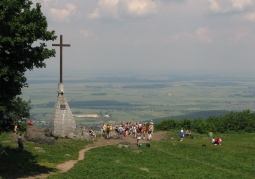
Góra Ślęża - Góra Ślęża Nature Reserve - Ślężański Landscape Park
Category: Peaks and valleysThe highest peak of the Ślęży Massif and the entire Przedmieście Foothills, built mainly of granite and gabra, rising to a height of 718 m a.s.l. From the 5th to the 8th century BC it was a sacred mountain of the...
4 km
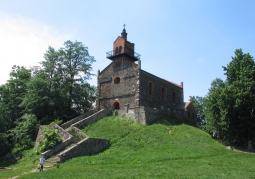
Church on Ślęża - Góra Ślęża - Góra Ślęża Nature Reserve
Category: ChurchesThe church's history dates back to the early 12th century during the reign of Bolesław III. In the second half of the 16th century, the Augustinians built a wooden chapel on the ruins of a pre-existing castle. In the...
4 km
Nearby places

Góra Radunia Nature Reserve - Ślężański Landscape Park
Category: Nature reservesA floristic reserve established in 1958. In 2011, the reserve area was increased to 44.26 ha. It covers the top parts of Radunia built of volcanic rocks with rare plant sites. There are extremely rare and protected...
1 km

Góra Ślęża Nature Reserve - Ślężański Landscape Park
Category: Nature reservesIt covers an area of 141.4 ha, covers, among others the top of Ślęża. It was created to protect historical monuments and landscape values located in the vicinity of the said peak. In addition, it protects...
4 km

Góra Ślęża - Góra Ślęża Nature Reserve - Ślężański Landscape Park
Category: Peaks and valleysThe highest peak of the Ślęży Massif and the entire Przedmieście Foothills, built mainly of granite and gabra, rising to a height of 718 m a.s.l. From the 5th to the 8th century BC it was a sacred mountain of the...
4 km

Church on Ślęża - Góra Ślęża - Góra Ślęża Nature Reserve
Category: ChurchesThe church's history dates back to the early 12th century during the reign of Bolesław III. In the second half of the 16th century, the Augustinians built a wooden chapel on the ruins of a pre-existing castle. In the...
4 km
